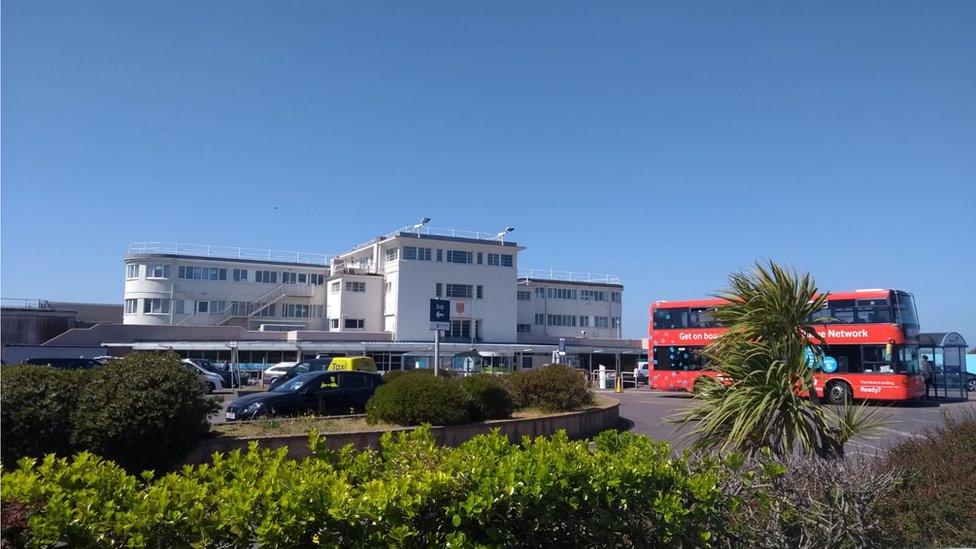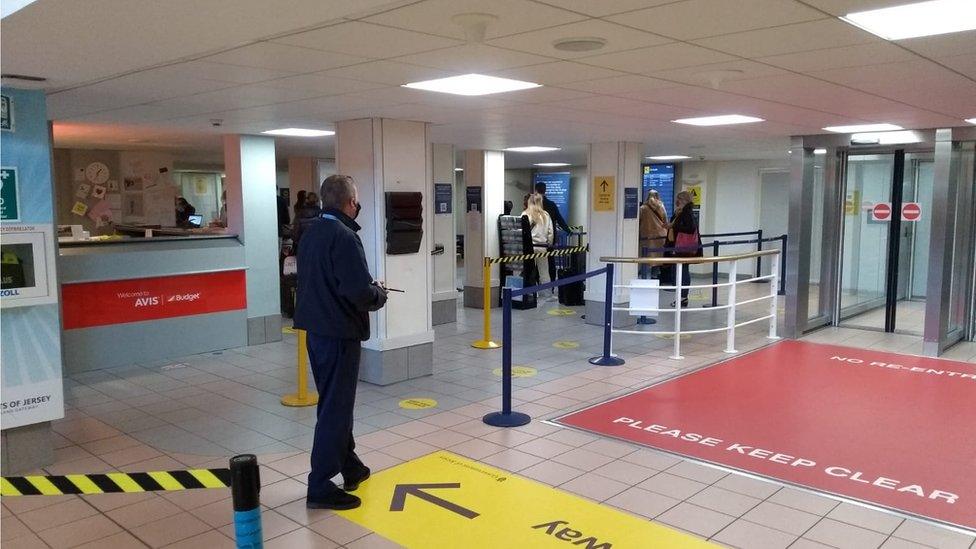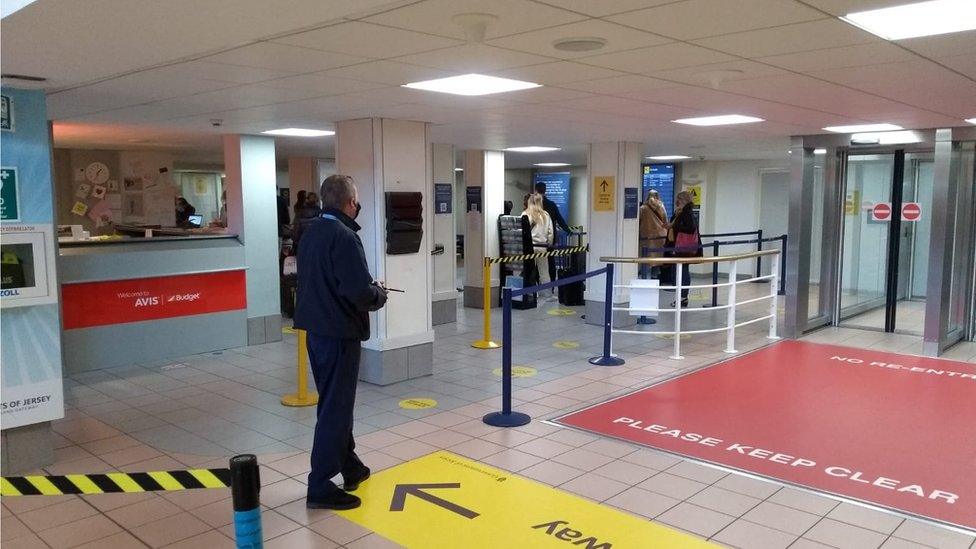Covid-19: Jersey to simplify travel classifications for UK arrivals
- Published

Regional classifications will be replaced with individual classifications for England, Wales, Scotland and Northern Ireland
Reduced self-isolation and coronavirus testing requirements for people arriving in Jersey from most of the UK are set to be introduced from 28 May.
The Government of Jersey will be simplifying the three-tier system.
Regional classifications will be replaced with individual classifications for England, Wales, Scotland and Northern Ireland.
Those from "green" areas, fewer than 50 cases per 100,000, only need to self-isolate until they get a negative test.
As things stand England, Wales and Scotland, as well as Guernsey and the Isle of Man, will be in this lower category, with arrivals only expected to take one further test on day eight after arriving.
Under existing rules, arrivals from green areas already do not need to self-isolate if they have had a negative test within 72-hours of arrival, and have told the government 12-hours in advance.
But they are still expected to be tested three times - on day five and day 10.

People who have a negative PCR coronavirus test 72 hours before arriving in Jersey do not need to self-isolate
A system where fully vaccinated UK arrivals will not be required to self-isolate will be introduced at the "earliest opportunity" from 28 May, the government said.
Only Northern Ireland will remain on "amber", with between 50 and 120 cases per 100,000, which requires self-isolation until two negative tests have been recovered - one on arrival and another on day five, with a third on day 10 if required
People coming from "red" areas must continue to self-isolate for 10 days and until they have had three negative tests.
Anyone who has spent one or more nights in the two week period before coming to Jersey in a red or amber area must self-isolate according to those rules.
The classifications will continue to be reviewed and published each week.
'Clarity for travellers'
The decision was taken based on "strong progress on vaccination in Jersey and the UK" lowering the risk, the government said.
As of last Wednesday, 43% of adults in Jersey were fully vaccinated, with about 32% of the UK population having had two doses.
Chief Minister John Le Fondre said: "The decision has been made based on a number of factors, including public health risk, clarity for travellers and Islanders, and the short and long-term economic impact to the Island."

Follow BBC Jersey on Twitter, external and Facebook, external. Send any story ideas to channel.islands@bbc.co.uk, external.
Related topics
- Published26 April 2021
